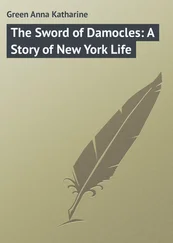Ann Beattie - The New Yorker Stories
Здесь есть возможность читать онлайн «Ann Beattie - The New Yorker Stories» весь текст электронной книги совершенно бесплатно (целиком полную версию без сокращений). В некоторых случаях можно слушать аудио, скачать через торрент в формате fb2 и присутствует краткое содержание. Жанр: Старинная литература, на английском языке. Описание произведения, (предисловие) а так же отзывы посетителей доступны на портале библиотеки ЛибКат.
- Название:The New Yorker Stories
- Автор:
- Жанр:
- Год:неизвестен
- ISBN:нет данных
- Рейтинг книги:5 / 5. Голосов: 1
-
Избранное:Добавить в избранное
- Отзывы:
-
Ваша оценка:
- 100
- 1
- 2
- 3
- 4
- 5
The New Yorker Stories: краткое содержание, описание и аннотация
Предлагаем к чтению аннотацию, описание, краткое содержание или предисловие (зависит от того, что написал сам автор книги «The New Yorker Stories»). Если вы не нашли необходимую информацию о книге — напишите в комментариях, мы постараемся отыскать её.
The New Yorker Stories — читать онлайн бесплатно полную книгу (весь текст) целиком
Ниже представлен текст книги, разбитый по страницам. Система сохранения места последней прочитанной страницы, позволяет с удобством читать онлайн бесплатно книгу «The New Yorker Stories», без необходимости каждый раз заново искать на чём Вы остановились. Поставьте закладку, и сможете в любой момент перейти на страницу, на которой закончили чтение.
Интервал:
Закладка:
In front of him, a little boy in a wetsuit played with a fishing rod that dangled no lure, casting it all wrong, the way he’d learned to throw a softball. His mother and father sat on a blanket, their attention focused on each other.
As the sky turned that indescribable silvery tone it often attained in late summer in Maine, Cahill rubbed his face and was surprised that his skin was still hot from the sun. A real Mainer would have worn his baseball cap. He slid a bit lower in his chair, and some time later was startled awake by squawking gulls. The charcoal-gray sky was flatlining a thin horizontal line of pale pink; the breeze had a bite to it. The couple and their child had gone, a bucket with a broken handle and a pile of shells left behind. He stood and folded the chair, scooping up his shoes with his other hand.
He drove home, appreciating what a pretty town this was, how the residents kept their houses in such good repair. Back home, he stashed the chair in the garage, where the garter snake who’d lived there contentedly for years slithered away behind piles of tied-up newspapers. His wife’s plastic planters dangled from a beam, the few dried stems that remained deteriorating into dust. As he started up the walkway, he saw something suddenly dart past a bush at the side of the house, startling him so that he teetered for balance on the edge of the bricks. It was Napoleon, panting, big ears flapping.
“You listen here,” he said to the dog, grabbing his collar. “You desecrated a graveyard, you—” He stopped, automatically rephrasing, in case he might not be understood. “You shit in the graveyard and knocked down the new wall!” he yelled. “You come with me.”
He was dragging the dog across the lawn, though the animal dug down, clawing as if to score music, trying to stop the forward rush. The dog yelped as Cahill dragged him all the way to the wall, which was now even more caved in, though thankfully there was no more shit inside the enclosure. “Bad dog! Bad dog!” he said, jerking the collar. The dog risked further pain to turn his neck to look up at him, and what Cahill saw was fear. Fear and incomprehension. The sad squeaky sound went infinitely sharp, and Cahill realized he’d been intending to push the dog’s nose against a pile of shit that was not his. It had been left by a much larger animal. Of course it had. Look at the size of the dog, and look at the pile of shit.
Instantly, he loosened his hold on the collar but stopped short of releasing it entirely, because of course the dog—any sane creature—would immediately run away.
“I’m sorry,” he said, bending and putting his lips close to the dog’s head, the smell of grass and dog mixed with a hint of . . . could it be lavender? “I’m sorry,” he said staunchly, as if someone might overhear. Then, leaning in even closer, he risked letting go of the collar, whispering, “I misunderstood.”
The Confidence Decoy

Francis would be driving his Lexus back from Maine. His wife, Bernadine, had left early that morning, taking their cat, Simple Man, home to Connecticut with her. Their son, Sheldon, had promised to be home to help out when the moving truck arrived, but that was before he’d got a phone call from his girlfriend, saying that she would be flying into J.F.K. that afternoon. So he was gone—when was Sheldon not outta there?—though the moving men were perfectly capable of unloading furniture without anyone’s help. What had Bernadine imagined—that Sheldon would have ideas about decorating, about what should go where?
Francis’s aunt had died, and, since he was one of only two surviving relatives and the other, Uncle Lewis, was in an assisted-living facility in California, the emptying of her summer house had fallen to Francis. Uncle Lewis had asked for the pie safe and for the bench in the entryway, nothing else, maybe an Oriental rug, if the colors were still good and it wasn’t very big. Francis had rolled up the small Tabriz, which he tied with string and put in the bottom of the pie safe.
A few days earlier, Sheldon had taken his father aside to ask his advice: should he become engaged to his girlfriend now, or get the first year, or even the first two years, of law school behind him first? Sheldon and Lucy had already discussed marriage, and she seemed in no hurry, but he hadn’t liked her going off to teach English in Japan with no engagement ring on her finger. Francis thought Lucy a nice young woman, pretty, neither shy nor aggressive, but, really, despite the many occasions on which they’d interacted, he could not get much of a sense of her. She’d twice been involved in car accidents in the past year, both times when she was driving, but that didn’t necessarily mean anything—three times would have been more definitive. The biggest clue Francis had got about Lucy had come one morning after she’d spent the night, when she’d come down to breakfast late, wearing a T-shirt and jeans, and trailing her underpants in one leg of the jeans. Bernadine had whispered to her, and Lucy had turned bright-red and snatched up the underpants, stuffing them down the front of her jeans. She’d had no sense of humor about it at all. Well, he couldn’t imagine having come downstairs at the Streetmans’ (what would it be—forty-some years ago?) after sleeping with Bern, because no such thing would ever have happened. They would have had him arrested. But this was a different age, and he had no objection to Lucy’s sleeping with Sheldon in their house. They put their cups and saucers in the sink, and were extremely quiet. The TV in Sheldon’s bedroom never went on, as Bern had pointed out.
Bernadine said that she liked Lucy, but Francis thought she might like her only moderately. For a woman who’d wanted a daughter, Bern was quite skeptical of other people’s daughters, though her skepticism about Lucy took the form of mentioning little oddities and quickly adding, “Nothing wrong with that, of course.” One of the things that there was nothing wrong with was Lucy’s inability to cook—her ineptitude extending even to lettuce-washing, to not understanding what a salad spinner was. She recoiled from the blender and the toaster as if they might become animated without her touching them. She drank a lot of tea, so she could boil water. But why did she resist when Bern tried to explain how other things were done in the kitchen?
Then Bern had begun finding banana peels in strange places: thrown behind a flowering bush in the garden, or pushed into a vase. “Fortunately none in the linen closet yet,” Bern said wryly. She had found two or three folded inside empty toilet-paper rolls in the trash; she’d found another buried in the little trash can that held lint from the dryer.
“What do you think?” she asked Francis. “Is it some kind of eating disorder? Some comment on something or other?”
“She’s realized we’re monkeys,” he said, curling his fingers and scratching his ribs, puckering his lips.
“It isn’t funny to me, Francis, it’s upsetting. I’ve never known anyone to stash banana peels.”
“How do you know it isn’t Sheldon?”
“Have you ever once known him to bring any food whatsoever into this house? He doesn’t even come in eating a candy bar. I’ve never once seen him with a cup of takeout coffee. He’s so lazy he relies entirely on the groceries I bring home.”
Francis put down his newspaper and looked over the top of his glasses. “Maybe it’s a mating ritual,” he said, but she’d already left the room.
Now Francis stood in the hallway of his aunt’s house, wondering if it would be worth it to take out the ceiling fixture and replace it with something less expensive and less unique before the real-estate agent came back. This required outguessing the people who would eventually tour the house: would they be inclined to like everything, once they’d seen such a splendid light fixture, or would they breeze past, the men concerned about the basement, the women interested in the kitchen? He was contemplating calling Bern to ask her opinion when he saw the Burwell Boys Moving truck turn in to the driveway, sending gravel flying into the peony beds. A hollyhock went flying like a spear. Low-hanging tree limbs snapped off.
Читать дальшеИнтервал:
Закладка:
Похожие книги на «The New Yorker Stories»
Представляем Вашему вниманию похожие книги на «The New Yorker Stories» списком для выбора. Мы отобрали схожую по названию и смыслу литературу в надежде предоставить читателям больше вариантов отыскать новые, интересные, ещё непрочитанные произведения.
Обсуждение, отзывы о книге «The New Yorker Stories» и просто собственные мнения читателей. Оставьте ваши комментарии, напишите, что Вы думаете о произведении, его смысле или главных героях. Укажите что конкретно понравилось, а что нет, и почему Вы так считаете.









![О Генри - Рождение ньюйоркца [The Making of a New Yorker]](/books/405345/o-genri-rozhdenie-nyujorkca-the-making-of-a-new-yo-thumb.webp)


